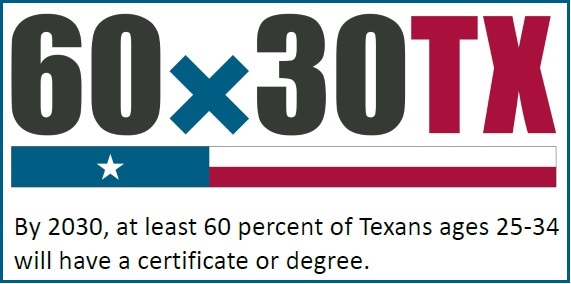
You're required to take a number of tests during high school. Some help make sure you have the knowledge needed for graduation, and others measure your level of reading, writing and math skills. The good news is, tests can tell you a lot about yourself. They measure your knowledge and skill level, and help you judge how ready you are for college.
***Remember, the information on this page is general. You should talk to a school counselor, teacher, or your parents/guardians if you have questions or are unsure which tests you will be taking.***
Here are a few of the more common tests you may need to take, and why they’re so important:
- The STAAR (State of Texas Assessments of Academic Readiness) are required for students in grades 3-8 and are a graduation requirement for students taking high school level courses in Algebra I, English I, English II, U.S. history, and biology. If your school district chooses to participate, optional assessments in English III and Algebra II may also be administered. The STAAR tests are designed to measure the extent to which you have learned and can apply the knowledge and skills defined in the state-mandated curriculum standards, the Texas Essential Knowledge and Skills (TEKS). Check out STAAR FAQs or go to the STAAR Media Toolkit for more information. The STAAR tests replaced the previous state assessment, the Texas Assessment of Knowledge and Skills (TAKS) for students first enrolled in ninth grade in the 2011-2012 school year or later.
- Many colleges and universities in the U.S. and Texas require you to take either the SAT (Scholastic Aptitude Test) or the ACT Test. Often your scores on these tests determine whether you will be admitted to the college of your choice. Some colleges and universities award special scholarships based on your scores. The SAT and ACT indicate if you have the reading, writing and math skills needed for college-level work. The ACT test assesses high school students' general educational development and their ability to complete college-level work. The tests cover four areas: English, mathematics, reading and science. Almost every college in America accepts the SAT as a part of its admissions process. More than two million students take the SAT every year.
- AP (Advanced Placement), International Baccalaureate Program (IB), and CLEP (College Level Examination Program) exams allow you to gain college credit for things you've learned in high school. College-level AP courses enable you to earn credit or advanced standing at Texas colleges and universities. IB credit is awarded similarly to AP credit. CLEP tests give you the opportunity to receive college credit for what you you've already learned through independent study, prior course work, on-the-job training, professional development, cultural pursuits or internships.
- All students (except those who meet certain exemptions) must take a Texas Success Initiative Assessment (TSIA) before enrolling in college-level courses. Your college advisor will use the results to help you choose the right courses. The TSIA is part of the Texas Success Initiative (TSI) program designed to help your college or university determine if you are ready for college-level course work in the areas of reading, writing, and mathematics. Your college advisor will use the results to help you choose the right courses.
These are some of the other test you may need to take, depending on your specific situation:
- The PSAT/NMSQT (Preliminary SAT/National Merit Scholarship Qualifying Test) is a multiple-choice test administered by the College Board and National Merit Scholarship Corporation. PSAT scores determine eligibility for the National Merit Scholarship Program. Why take the PSAT? Your score could lead to a National Merit Scholarship (that's $ for college). Also, Your score could tell you a lot about how you might do on the SAT and where you may need help or practice.. Finally, doing well on the PSAT can boost your confidence.
- If you can't complete high school, you should take the GED (General Educational Development) Test. Passing the GED is equivalent to a high school diploma. When passed, this group of five tests certifies that you have high school level academic skills. To earn a GED, students must score higher than 40.
- The Texas Assessment of Knowledge and Skills (TAKS), Texas Assessment of Academic Skills (TAAS), and Texas Educational Assessment of Minimum Skills (TEAMS) are no longer administered. Students for whom one of these tests was a graduation requirement should contact either their previous school district or the Texas Education Agency (512-463-9536) for more information if they have not met their testing graduation requirements.


